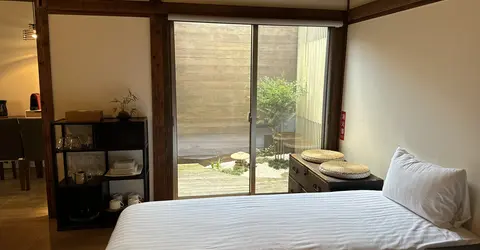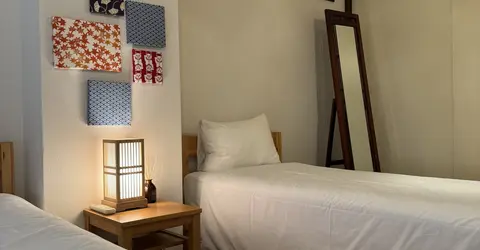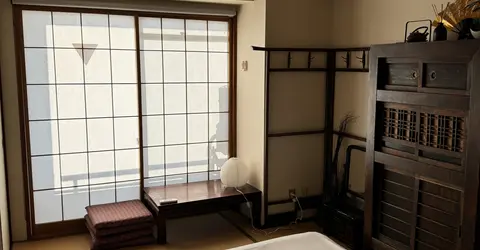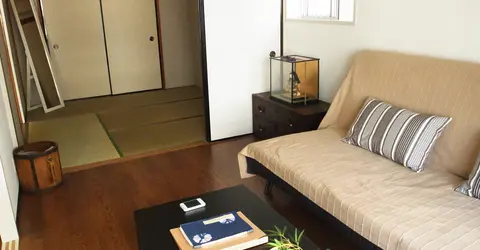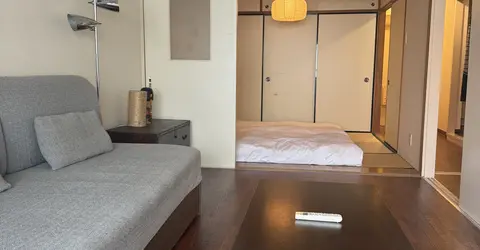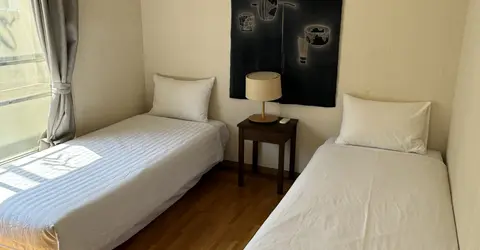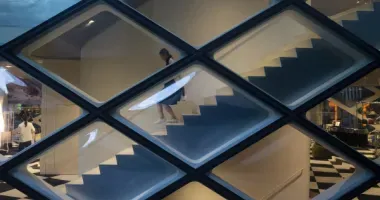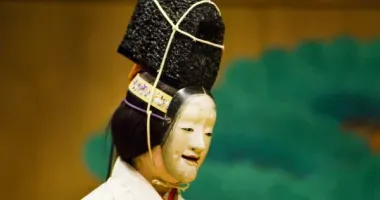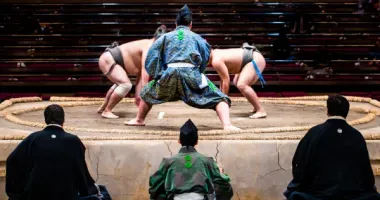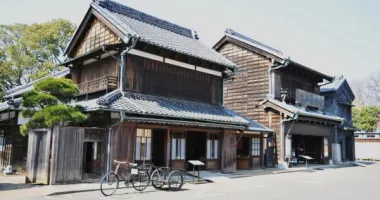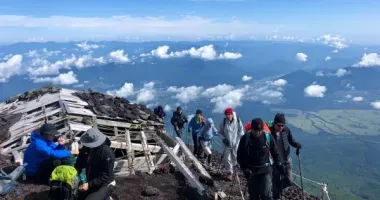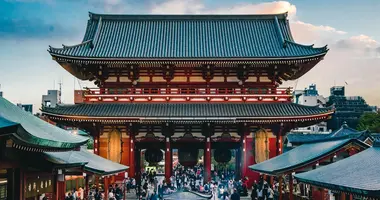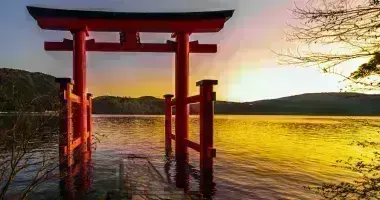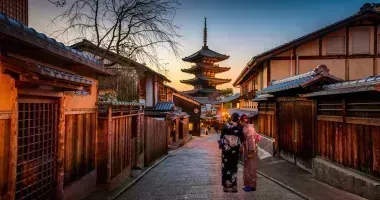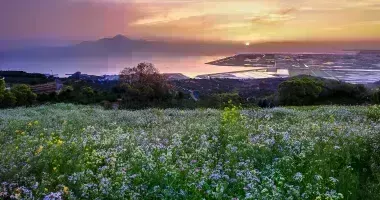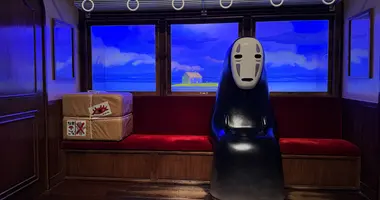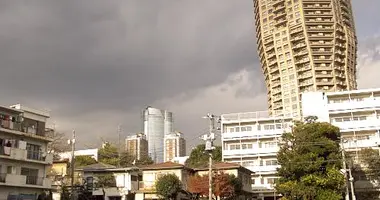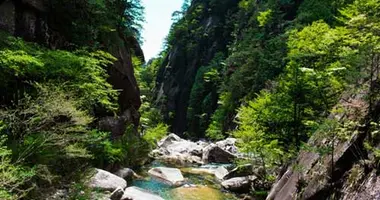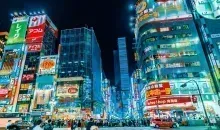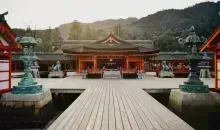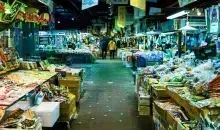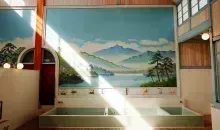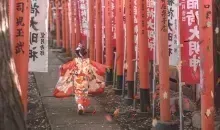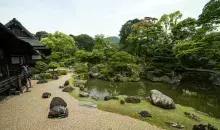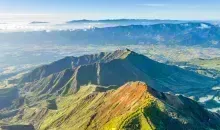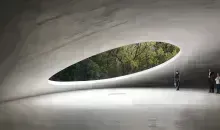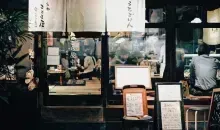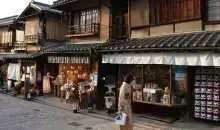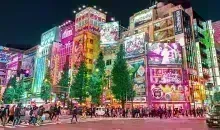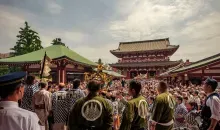Tokyo Onsen Baths and Thermal Springs
- Tokyo Bath House History
- North-East Tokyo Bath Houses
- North-West Tokyo Bath Houses
- Central Tokyo Bath Houses
- South Tokyo Bath House
- West Tokyo Bath Houses
- Bath House Etiquette
- Google Map of Tokyo Hot Spring Baths
- Japan Onsens
Top Ten Tokyo Baths and Hot Springs (Onsen) 東京の温泉

Tokyo has many sento and onsen to relax in
Bathing communally is a neighborhood tradition in Japan, and Tokyo is no exception, with almost 700 bath houses - or sento - throughout the metropolis (down from almost 3,000 in the 1930's). A sento is the truly neighborhood style of bathhouse that locals typically go alone to, as opposed to the usually larger and more recreational, resort-oriented onsen ("hot spring").
History of Bath Houses in Japan
Bath houses in Japan are said to have begun in the Kamakura era of Japanese history, when temples and shrines would provide a bath house for priests to cleanse themselves in, and also make them available to the public - for free. The manorial system disintegrated in the ensuing Muromachi era, and temples were no longer in control of large swathes of territory. They therefore had to start charging a fee for entry to the bath house, and the sento was born.
Tokyo's first bath house was a steam bath said to have been opened in the 1590's, with today's tub-type bath house not appearing until the Edo period.
See a listing below of ten of the best Tokyo onsen and sento bath houses by area.

La Qua, Tokyo

Toshimaen Niwa No Yu, Tokyo
North-East Tokyo Bath Houses
North-east Tokyo, centered on Taito ward, is the most traditional part of the capital, where the neighborhood spirit is still alive, and the patina of history is still very visible. One of Japan's oldest temples, Sensoji, is here in the Asakusa district, yet nearby is also one of Tokyo's newest structures, the Tokyo Skytree. A little west of Asakusa is Ueno Park: a fascinating mixture of low-brow entertainment and high culture (museums), and with market alleys nearby in the bustling Ameyoko district.
Tsubameyu - if you like it hot 燕湯
Tsubameyu is a very traditional bath house in Ueno, near Ameyoko. Tsubameyu's main claim to fame is its very hot water. While the water temperature fluctuates somewhat throughout the day, it can be guaranteed to be over - sometimes well over - 40 degrees Celsius (104 degrees Fahrenheit). Another interesting feature of Tsubameyu is its zakuro-guchi (literally, "pomegranate mouth") entrance way to the baths, being a very low entrance way that requires great care when ducking under so as not to hit your head. Zakuro-guchi were actually outlawed in 1879 on hygiene grounds because the resulting darkness inside made it impossible to tell how clean or dirty the water was. Maybe Tsubameyu's zakuro-guchi is a reconstruction, but there are no worries about hygiene (or even darkness) today. Just watch your head! A sign with "wa" (わ) in hiragana hangs out front when Tsubameyu is open, and "nu" (ぬ) when it is closed.
Hours: 6 am-8 pm, closed Monday.
Admission: 460 yen for adults.
Access: Tsubameyu is 4 minutes walk from the South Exit of JR Okachimachi Station, 5 minutes walk from Ueno-okachimachi Station on the Oedo Subway Line, 4 minutes from Ueno-hirokoji Station on the Ginza Subway Line, 7 minutes walk from Naka-Okachimachi Station on the Hibiya Subway Line, and 5 minutes from Yushima Station on the Chiyoda Subway Line.
Address: 3-14-5 Ueno, Taito-ku, Tokyo 110-0005
Tel. 03 3831 7305
Jakotsuyu - tattoos OK 蛇骨湯
Jakotsuyu is a historical sento in the popular tourist district of Asakusa, not far from the ancient and famous Sensoji Temple. Jakotsuyu's main attraction is its relatively cool mineral spring waters, at 18 degrees Celsius (64 degrees Fahrenheit) which contain minerals from organic matter that has leached into it. As well as the main bath, there is an open air bath and electric bath. There are also a jet-massage bath and extra-hot sauna - both of which require a small extra charge to use. While an old sento, Jakotsuyu is clean and in good order, with equipment like scales, blood pressure gauges, and mobile phone chargers, all for free use of guests. Soap and shampoo are free, and a towel, disposable razor and toothbrush, with a small bag to hold them, is available for a small fee. The ticket machine at the door includes an English-language interface. Guests with tattoos are admitted, making Jakotsuyu a particularly user-friendly sento, unlike the vast majority of Japanese bathhouses, which prohibit tattoos.
Hours: 1 pm-midnight (last entry 11:40 pm), closed Tuesday, but open when Tuesday falls on a national holiday, in which case it closes the next day.
Admission: 460 yen for adults.
Access: Jakotsuyu is 3 minutes walk from the "Kokusaidori A" Exit of Asakusa Station on the Tsukuba Express line, 3 minutes walk from Exit 3 of Tawaramachi Station on the Ginza Subway Line, and 5 minutes walk from Exit 1 of Asakusa Station on the Ginza Subway Line, this exit also being directly accessible from Asakusa Station on the Asakusa Subway line.
Address: 1-11-11 Asakusa, Taito-ku, Tokyo 111-0032
Tel. 03 3841 8645
North-West Tokyo Bath Houses
North-west Tokyo centers on the Ikebukuro area, which is a largely youth-oriented shopping district that in recent years has become particularly well-known for its manga, cosplay, kawaii and dojin culture.
Tokyo Somei Spa Sakura - get pampered 東京染井温泉サクラ
Tokyo Somei Spa Sakura is a spa complex near Ikebukuro in Tokyo that is particularly suited to guests who like treatments and who go there accompanied by friends or family. Sakura is a two-floor facility, divided, like all bath houses, into men's and women's zones, and has dozens of different kinds of baths, saunas and treatment rooms, including jet baths and mist saunas, and pay-for services like warm rock beds, body scrubs, chiropractic massage, an aesthetic salon, and a restaurant. (Note that these services begin at 10.30 am, half an hour after opening time.) The water at Sakura comes from 1.8 kilometers underground and is some of the clearest hot spring water in Tokyo, laden with natural constituents said to promote wellbeing. Tokyo Somei Spa Sakura is near the excellent APA Hotel Sugamo Ekimae.
Hours: 10 am-11 pm (last entry at 10.30 pm), open every day of the year.
Admission: 1,296 yen for adults, 756 yen for 3 y.o. to elementary school age. Robes and towels are charged for separately.
Access: Tokyo Somei Spa Sakura is 8 minutes walk from the North Exit of Sugamo station on the JR Yamanote line, or go to the South Exit and take the free shuttle bus that departs from the other side of the roundabout about every 10 minutes. 6 minutes walk from Exit A4 of Sugamo station on the Mita Subway line.
Address: 5-4-24 Komagome, Toshima-ku, Tokyo 170-0003
Tel. 03 5907 5566
Saya no Yudokoro - the feel of bygone Japan さやの湯処
Saya no Yudokoro, also known as Maenohara Onsen, is a beautiful onsen facility a little north-west of Ikebukuro, and is focused on offering an outdoor/semi-outdoor bathing experience in a nature-inspired environment. The grounds are Japanese garden style, with artistically placed rocks and trees, where guests can enjoy the delights of each season. There are 14 kinds of bath, fed by hot spring water from 1,500 meters down, which is a distinctive green-brown color from its sodium chloride content. There is a restaurant here housed in a Japanese-style wooden building inspired by the architecture of a century ago where you can dine on soba noodles and seasonal Japanese fare.
Hours: 10am – 1am (last entry at midnight)
Admission: 870 yen on weekdays, 1,000 yen on weekends.
Access: 8 minutes walk from Exit A2 of Shimura-Sakaue Station on the Toei Mita Line
Address: 3-41-1 Maenocho, Itabashi-ku, Tokyo 174-0063
Tel. 03 5916 3826
Toshimaen Niwa no Yu - trad with mod cons 豊島園 庭の湯
Toshimaen Niwa no Yu, somewhat west of Ikebukuro, is next to the Toshimaen amusement park run by the Seibu Group, in Tokyo's north-west. This two-floor mega-onsen offers varied spa experiences in a traditional Japanese setting, but with all the mod cons. The theme is "water, garden and rocks," the water referring to the numerous baths to enjoy, with a big circular garden at the center of the complex and spanning both floors, and rocks artistically placed throughout for the final aesthetic touch, as well as a rock spa where guests lie on a warm bed of stone. The big bathing area with a view of the central garden is fed by springs from 450 meters underground full of health-inducing minerals and salts. There is an indoor Finnish sauna, and an outdoor one where the sexes can mix, but wearing bathing costumes. An Aufguss sauna is there for those into the healing power of scents. The Japanese garden at the center is by the famous garden designer, Kenzo Ogata (1912-1988) and is a sylvan delight with carp ponds, waterfalls, streams and more, changing its colors every season.
Hours: 10 am-11 pm (last entry at 10 pm), open every day of the year.
Admission: 2,310 yen (covers robes towel, etc.). No guests younger than junior high school age are admitted.
Access: Niwa no Yu is a 1 minute walk from Toshimaen Station on the Seibu Toshima line. and 2 minutes' walk from Exit A2 of Toshimaen Station on the Oedo Subway Line.
Address: 3-25-1 Kouyama, Nerima-ku, Tokyo 176-0022
Tel. 03 3990 4126
Central Tokyo Bath Houses
Central Tokyo offers a myriad of big-city delights, from Tokyo shopping to Tokyo museums to Tokyo sightseeing. The following bath houses are in the middle of Tokyo, so appeal with their accessibility to all the big attractions.
LaQua - if you like it big ラクーア
LaQua is maybe Tokyo's most modern - and biggest - take on a sento, being a multi-story bath house/sauna/spa complex, with lots of extras, inside the massive Tokyo Dome City attraction, which includes the Tokyo Dome Hotel. The water used in LaQua is natural spring water, pumped up from 1.7 km (1 mile) underground. The salts in the water are claimed to be especially good at boosting circulation, and relieving shoulder discomfort, intermittent nerve pain, and joint pain. Each floor is a "zone," with the the Restaurant Zone & Relaxation Zone on the 5F, the Spa Zone on the 6F, the Rendezvous Zone on the 7F, and the Healing Baden Zone on the 8F & 9F. Inside LaQua is conveniently cashless, with any dining, massages or other treatments being billed altogether at the time of your departure.
Hours: 11 am to 9 am the next day. (Last entry 7 am). Open 22 hours of the day, every day of the year.
Admission: 2,634 yen for adults. Includes towel, robe, etc.
Access: 1 minute walk from Exits 1 & 2 of Korakuen Station on the Marunouchi Subway line and Namboku Subway line. 2 minutes walk from Exit A1 of Kasuga Station on the Oedo Subway Line. 3 minutes walk from Exits A2, A3, A4 and A5 of Suidobashi Station on the Mita Subway line. 6 minutes walk from the West Exit of Suidobashi Station on the JR Chuo-Sobu line.
Address: 1-1-1 Kasuga, Bunkyo-ku, Tokyo 112-0003
Tel. 03 5800 9999
Konparuyu - classic Japan in classy Ginza 金春湯
Konparuyu is a sento in the prime boutique shopping and art dealer district of Ginza. Konparuyu is one of only two sentos remaining in Ginza, and has over a century and a half of history, dating from 1863. While not huge, Konparu has a high ceiling making for a sense of open space and evokes an age when space and time were commodities more affordable and available than today. Konparuyu features a bright interior with old-style tile decorations and, most strikingly, a classic mural of Mt. Fuji that dominates the space and really makes the bather feel in Japan. The baths include water-jet baths and bubble-fed baths for a little extra stimulation. Konparuyu supplies soap and shampoo, but you must pay a small fee for a towel (or bring your own). This small, very accessible sento is great for a quick refresh in almost quaintly Japanese surroundings.
Hours: 2 pm-10 pm, closed Sunday and public holidays.
Admission: 460 yen for adults.
Access: Konparuyu is 5 minutes walk from JR Shimbashi Station, or 5 minutes walk from Ginza Station on the Ginza Subway Line.
Address: 8-7-5 Ginza, Chuo-ku, Tokyo 104-0061
Tel. 03 3571 5469
South Tokyo Bath House
South Tokyo, on Tokyo Bay, is nearly all reclaimed land that is home to some of the newest and most cutting-edge facilities that Tokyo has to offer. Pride of place goes to the Odaiba district, which comprises joined islands filled with top Tokyo shopping and entertainment opportunities.
Tokyo Odaiba Oedo-Onsen-Monogatari - party time! 大江戸温泉物語
"Onsen-Monogatari" means "The Tale of the Hot Spring" and this complex in the Odaiba area beside Tokyo Bay recreates a buoyant old Tokyo bathhouse experience, but of course with modern comforts. The atmosphere at Tokyo Odaiba Oedo-Onsen-Monogatari is purposely festive, with guests all clad in yukata robes, and the facilities modeled on the traditional market town that was old Edo (before it was renamed "Tokyo"). Tokyo Odaiba Oedo-Onsen-Monogatari is as much outdoor as it is indoor, with open air baths and a multitude of dining, shopping and entertainment opportunities - all with a traditional Japanese twist. Numerous pay-for extra services are available, ranging from a head spa, to foot reflexology to a full-body massage. The hot spring water is the real thing, from over 1,400 meters underground. As well as the (gender differentiated) big communal baths, there are foot baths, a Kinu No Yu "silk" bath of micro-bubbles, and pay-for experiences like a rock salt sauna, and a tank where fish nibble the dead skin off of your feet. A watery rock-lined path through the Japanese garden is for believers in "no pain, no gain." All purchases made are using a special card, which is paid for when leaving. The award-winning Grand Nikko Tokyo Daiba Hotel is nearby.
Hours: 11 am to 9 am the next day. (Last entry 7 am). Open 22 hours of the day, every day of the year.
Admission: 2,612 yen for adults, or 2,072 yen for adults if entering after 6 pm. A small surcharge applies on weekends and public holidays.
Access: 2 minutes walk from Telecom Center station on the Yurikamome line, or 7 minutes walk from Tokyo Teleport station on the Rinkai line.
Address: 2-6-3 Aomi, Koto-ku, Tokyo 135-0064
Tel. 03 5500 1126

Oedo Onsen Monogatari Hot Springs, Tokyo

Oedo Onsen Monogatari Hot Springs, Tokyo
West Tokyo Bath Houses
Western Tokyo is dominated by the Shinjuku district, which is Tokyo's shopping, business and administrative powerhouse, full of skyscrapers. The following bath houses are just a little west of Shinjuku for a pleasant, easily accessed break from the hustle and bustle.
Nagominoyu - mod bathing not far from Shinjuku なごみの湯
Nagomi-no-yu is a big, modern 5-floor bathing facility conveniently located in front of Ogikubo Station just six stops west of Shinjuku Station on the JR Chuo-Sobu line. Nagominoyu offers all the delights of traditional Japanese bathing - including numerous different kinds of baths, saunas and spas - but in an updated atmosphere, and with lots of very comfortable mod cons. As well as the regular natural hot spring baths, there is a "healing spa" for most of the day that requires a small extra charge, a huge relaxation lounge with business-class-type easy chairs to blob out in when you've finished bathing, a pay-for massage service offering various different courses, and a very reasonably priced restaurant serving good food.
Hours: 10 am (or 9.30 am on Saturday)-9 pm.
Admission: 2,000 yen for adults.
Access: 1 minute walk from the West Exit of JR Ogikubo Station.
Address: 1-10-10 Kamiogi, Suginami-ku, Tokyo 167-0043
Tel. 03 3398 4126
Utsukushi no Yu 美しの湯
Utsukushi no Yu (literally "beautiful hot water") is a big neighborhood sento in Suginami ward in the west of Tokyo that advertises itself as an "urban oasis." This big sento occupies the second floor of a building that has a supermarket on the first floor. It caters to the immediate neighborhood of regular bathhouse goers, but appeals to visitors from further afield too with a range of resort-style onsen features based on a traditional onsen resort. There are dozens of different kinds of pools, from jet to positive ions to negative ions, and an attractive outdoor rotemburo pool in a rock garden surrounded by greenery that changes with the seasons. The Body Care Room offers a variety of massage and other treatments. The restaurant here has a big menu of reasonably priced Japanese-style dishes. Utsukushi no Yu also has a 25-meter swimming pool that can be used by guests on weekends and public holidays.
Hours: 9.30 am-midnight
Admission: 900 yen on weekdays, 1,200 yen on weekends.
Access: 3 minutes walk from the North Exit of Takaido Station on the Keio Inokashira Line
Address: 2-3-45 Takaidonishi, Suginami-ku, Tokyo 168-0071
Tel. 03 3334 0008
Bath House Etiquette
When in Rome, do as the Romans, and when in Japan, do as the Japanese. Bath house etiquette is simple, and because it touches on matters (and perceptions) of hygiene and other cultural values, it should be strictly followed.
1. No tattoos - Jakotsuyu above is a rare exception to this rule. Tattoos may be fashionable now, but traditionally in Japan they are the mark of underworld (read "criminal") characters, and it will take a long time before this perception changes. If you have tattoos that can be effectively covered with plasters or the like, that's fine, but if there are too many or they are too prominent to cover do not try entering a bath house in Japan as it will end awkwardly for all.
2. Wash yourself thoroughly before entering a hot pool - wash all over (with soap and shampoo) at a wall-side shower. Hot pools are communal, and you must be seen to be spotlessly clean when you enter one.
3. Be calm! Especially in the local, neighborhood-style sento, keep it chilled and, basically, be respectful of others.
4. Be naked - not necessarily everywhere, but definitely in the baths themselves.
Google Map of Tokyo Hot Spring Baths
Use this map of Tokyo to locate each bath house by pasting its name in the larger map's search box.
Books on Tokyo Japan
A top ten selection of Tokyo onsen hot springs and sento bath houses.
